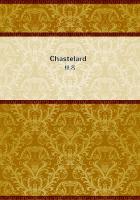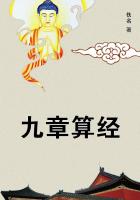Their goodness is not so good, their vice not so vicious as ours. Both are more derived from immediate intercourse. " What would be vice among us remains in France social irregularity induced by sentiment. [10] "These traits have an obvious connection with that more eager and facile communicativeness that strikes us so in the French: they have as a rule less introspection, live more immediately and congenially in a social stream from which, accordingly, they are less disposed to differentiate themselves.
France is, no doubt, as truly democratic in its way as the United States;indeed, in no other country, perhaps, is the prevalent sentiment of the people in a given group so cratic, so immediately authoritative. Such formalism as prevails there is of a sort with which the people themselves are in intelligent sympathy, not one imposed from above like that of Russia, or even that of Germany. But it is a democracy of a type quite other than ours, less differentiated individually and more so, perhaps, by groups, more consolidated and institutional. The source of this divergence lies partly in the course of history and partly, no doubt, in race psychology.
Rooted dissensions, like that between the Republic and the Church, and the need of keeping the people in readiness for sudden war, are (335) among the influences which make formal unity more necessary and tolerable in France than in England.
The French kind of solidarity has both advantages and disadvantages as compared with the Anglo-Saxon. lt certainly facilitates the formation of well-knit social groups; such, for instance, as the artistic "schools"whose vigor has done so much toward giving France its lead in "esthetic production. On the other hand, where the Anglo-Saxon type of structure succeeds in combining greater vigor of individuality with an equally effective unity of sentiment, it would seem to be, in so far, superior to a type whose solidarity is secured at more expense of variation. It is the self-dependence, the so-called individualism, of the Teutonic peoples which has given them so decided a lead in the industrial and political struggles of recent times.
Perhaps the most searching test of solidarity is that loyalty of the individual to the whole which ensures that, however isolated, as a soldier, a pioneer, a mechanic, a student, he will cherish that whole in his heart and do his duty to it in contempt of terror or bribes. And it is precisely in this that the Anglo-Saxon peoples are strong. The Englishman, though alone in the wilds of Africa, is seldom other than an Englishman, setting his conscience by English standards and making them good in action. This moral whole, possessing the individual and making every one a hero after his own private fashion, is the solidarity we want.
Tradition comes down from the past, while convention arrives, sidewise as it were, from our contemporaries; the (336) fireside tales and maxims of our grandparents illustrate the one, the fashions of the day the other. Both indicate continuity of mind, but tradition has a long extension in time and very little, perhaps, in place, while convention extends in place but may endure only for a day.
This seems a clear distinction, and a great deal has been made of it by some writers, who regard "custom imitation" and "fashion imitation," [11] to use the terms of Tarde, the brilliant French sociologist, as among the primary traits that differentiate societies.
Thus mediaeval society, it is said, was traditional: people lived in somewhat isolated groups and were dominated by the ideas of their ancestors, these being more accessible than those of their contemporaries. On the other hand, modern society, with its telegraphs, newspapers and migrations, is conventional. Thought is transmitted over vast areas and countless multitudes;ancestral continuity is broken up; people get the habit of looking sidewise rather than backward, and there comes to be an instinctive preference of fashion over custom. In the time of Dante, if you travelled over Europe you would find that each town, each district, had its individual dress, dialect and local custom, handed down from the fathers. There was much change with place, little with time. If you did the same to-day, you would find the people everywhere dressed very much alike, dialects passing out of use and men eager to identify themselves with the common stir of contemporary life. And you would also find that the dress, behavior and objects of current interest, though much the same for whole nations and having a great deal in common the (337) world over, were somewhat transient in character, changing much with time, little with place.
There is, truly, a momentous difference in this regard between modern and mediaeval life, bul to call ilt a change from tradition to convention does not, I think, indicate its real character. Indeed, tradition and convention are by no means the separate and opposite things they may appear to be when we look at them in their most contrasted phases. It would be strange if there were any real separation between ideas coming from the past and those coming from contemporaries, since they exist in the same public mind.
A traditional usage is also a convention within the group where it prevails.
One learns it from other people and conforms to it by imitation and the desire not to be singular, just as he does to any other convention. The quaint local costume that still prevails in out-of-theway corners of Europe is worn for the same reasons, no doubt, that the equally peculiar dress-suit and silk hat are worn by sophisticated people the world over; one convention is simply more extended than the other. In old times the conforming group, owing to the difficulty of intercourse, was small. People were eager to be in the fashion, as they are now, but they knew nothing of fashions beyond their own locality. Modern traditions are conventional on a larger scale.















